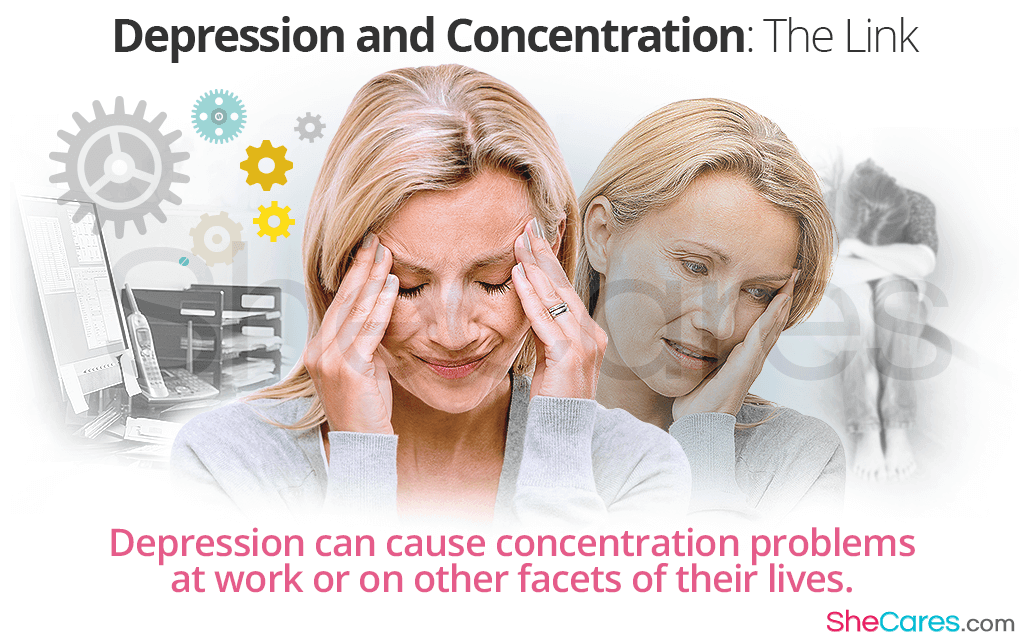For women who suffer from depression, daily life can already be quite difficult to manage. Making it even harder is the possibility of concentration problems that may arise with depression. There are many people who, due to depression, can't concentrate on their work or on other facets of their lives. Keep reading to learn more about the connection between depression and concentration.
Depression and its Symptoms
Rather than being just a side effect, concentration problems are actually one of the main symptoms of major depressive disorder, also commonly referred to as depression. There are a number of other symptoms as well, including:
- Sleep disturbances (e. g; insomnia or sleeping too much)
- Sadness, tearfulness, or hopelessness
- Loss of interest in daily activities
- Tiredness and exhaustion
- Weight loss or gain
- Worsened self-image
- Unexplained pain
- Irritability
- Suicidal thoughts
How Does Depression Affect Concentration?
If you have depression, it may be the cause of your inability to concentrate. There are a number of factors that influence depression and cause focus problems, but there are three main reasons for this symptom.
Neurotransmitters
Depression is a mental illness caused by an imbalance in neurotransmitters. In particular, neurotransmitters responsible for controlling the feeling of happiness tend to be in short supply in the brains of people with depression. This is a problem for concentration because the correct levels of neurotransmitters are crucial for all brain functioning, and when those levels begin to change, all brain functions - including concentration - begin to suffer.
Lack of sleep
While some women tend to sleep more due to depression, it is equally as likely for somebody suffering from depression to have difficulty falling asleep. Without enough sleep, the brain cannot work properly, and you are more likely to have trouble paying attention to or concentrating on anything you encounter, especially anything complicated.
Apathy
Depression actually tends to cause apathy - a lack of emotion - as well as the typical symptom of sadness. Women who are apathetic tend to lose interest in most pleasurable things, like hobbies and other fun activities, because they have stopped feeling good emotions and no longer want to spend the energy to partake in any of these activities. In many cases, when somebody has become apathetic and stopped caring, they are less likely to pay attention because it takes more effort to pay attention to something that holds no significance to the individual.
Managing Depression and Difficulty Concentrating
If you can't concentrate due to depression, managing your depressive disorder is the best way to handle your symptoms, both the symptoms related to concentration and otherwise. A doctor will help you decide on a treatment plant.
Cognitive behavioral therapy is one of the most common choices for people suffering from depression, as it can help them address both the thoughts and behaviors that go along with depression.
Certain medications can also be helpful for people suffering from depression, especially those with extremely severe depression and suicidal ideation. Medications are almost always given in conjunction with therapy so that the patient can learn to manage their symptoms without medication as well.
While depression and concentration problems are difficult to deal with, learning how to manage the symptoms and improve your condition can make life much easier. For more concentration tips, learn about how to concentrate and focus while reading.
